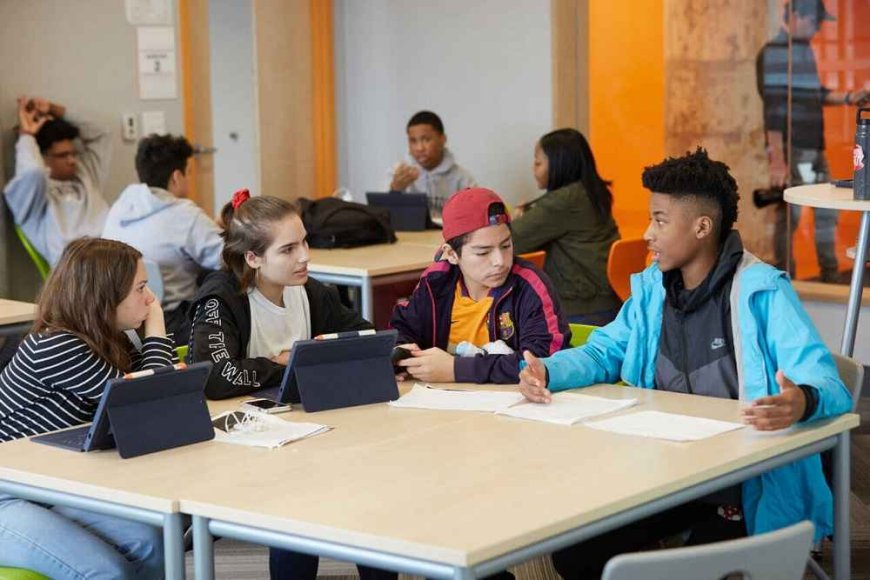Enhancing Critical Thinking Skills: Engaging Exercises for Students
In today's rapidly evolving world, the ability to think critically is more crucial than ever. Critical thinking equips students

In today's rapidly evolving world, the ability to think critically is more crucial than ever. Critical thinking equips students with the skills to analyze information, solve complex problems, and make informed decisions. While traditional education often emphasizes rote learning, integrating targeted critical thinking exercises into the curriculum can empower students to become active, analytical learners. Let's explore some engaging exercises that educators can employ to nurture and enhance students' critical thinking skills.
Socratic Seminars: Fostering Thoughtful Discussions
Socratic seminars are structured discussions that encourage students to explore complex questions. Educators facilitate these sessions by posing open-ended questions that require students to delve into a topic's nuances. Students engage in dialogue, provide evidence to support their viewpoints, and respond to their peers' perspectives. This exercise not only hones critical thinking but also enhances communication skills and the ability to consider multiple viewpoints.
Debate and Role-Playing: Engaging in Perspective Analysis
Debates and role-playing scenarios challenge students to step into different roles and argue from various perspectives. This exercise encourages them to thoroughly research and understand multiple sides of an issue. By having to construct convincing arguments for viewpoints they may not personally hold, students develop empathy and a deeper appreciation for the complexity of real-world problems.
Case Studies: Applying Analytical Skills
Case studies present real or hypothetical situations that require students to apply critical thinking to solve problems. Whether in the fields of science, business, or ethics, case studies encourage students to identify relevant information, assess different options, and make reasoned decisions. This exercise enhances analytical skills and the ability to consider the implications of each choice.
Puzzles and Brainteasers: Developing Logical Thinking
Puzzles and brainteasers are enjoyable tools that sharpen students' logical thinking. These challenges require students to analyze patterns, deduce solutions, and think creatively. Integrating puzzles into the learning process not only adds an element of fun but also cultivates skills essential for effective critical thinking.
Analyzing News and Media: Evaluating Information Sources
In the age of information, students must develop the ability to discern credible sources from unreliable ones. Incorporating exercises that involve analyzing news articles, advertisements, or social media articals encourages students to question the validity and bias of the information presented. This exercise enhances media literacy and helps students become more discerning consumers of information.
Mind Mapping: Visualizing Connections
Mind mapping is a visual technique that helps students organize and connect ideas. This exercise encourages students to identify relationships between concepts, categorize information, and visualize the "bigger picture." By creating visual representations of their thoughts, students can better grasp complex concepts and identify areas that require further exploration.
Problem-Solving Workshops: Collaborative Critical Thinking
Collaborative problem-solving workshops engage students in group activities that require brainstorming, idea-sharing, and consensus-building. These exercises often involve tackling real-world problems, encouraging students to pool their collective knowledge and devise innovative solutions. Through collaboration, students not only enhance their critical thinking but also develop teamwork and communication skills.
Ethical Dilemmas: Exploring Complex Morality
Presenting students with ethical dilemmas sparks thoughtful discussions about morality, values, and consequences. By analyzing these scenarios, students must weigh different factors, consider potential outcomes, and justify their choices based on reasoned arguments. This exercise cultivates ethical reasoning and encourages students to think beyond black-and-white solutions.
Predicting Outcomes: Developing Hypothetical Thinking
Asking students to predict the outcomes of events, experiments, or scenarios encourages them to think hypothetically. This exercise challenges students to apply existing knowledge and make informed guesses based on evidence. Predictive thinking helps students anticipate consequences and develop a deeper understanding of cause-and-effect relationships.
Reflective Journals: Enhancing Metacognition
Incorporating reflective journals prompts students to think critically about their own learning experiences. By encouraging them to analyze their thought processes, successes, and challenges, educators foster metacognition”the ability to think about one's thinking. This exercise nurtures self-awareness and helps students become more strategic and effective learners.
Enhancing critical thinking skills is a fundamental aspect of education that prepares students for a complex and ever-changing world. Integrating these engaging exercises into the learning process empowers students to think analytically, communicate effectively, and approach challenges with confidence. By prioritizing critical thinking, educators lay the foundation for students to become independent thinkers, problem solvers, and lifelong learners. As the landscape of education continues to evolve, cultivating critical thinking skills remains an essential investment in the success and adaptability of future generations.
